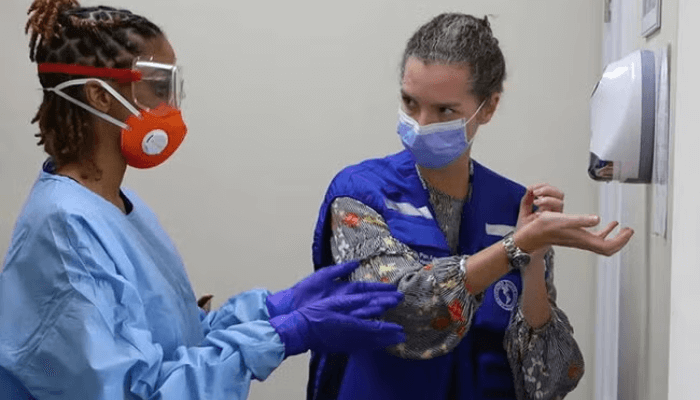Public health expert warns of increasing threat of hospital-acquired infections

Uwose Uba, a Professor of Public Health from the University of Queensland, Australia, has called for intensified control strategies against the threat of nosocomial (hospital-acquired) infections.
Uba was the guest lecturer at a public lecture organised by the Faculty of Basic, Medical and Applied Sciences, Trinity University, Sabo-Yaba, Lagos State, on Tuesday.
He spoke on: ‘Battling Infections Within: Public Health Strategies against Nosocomial Threats’.
According to the professor, nosocomial infections may occur through medical procedures or through environmental sources such as unhygienic hospital conditions, contaminated equipment, and food consumed within hospital environments.
According to him, even when infections originate from external food sources, they are still regarded as hospital-acquired if they occur while the patient is admitted and under hospital care.
The expert, therefore, urged governments and health institutions to prioritise hygiene protocols, regular staff training and strict infection prevention measures to strengthen hospital safety and restore public confidence in healthcare delivery.
“Continuous surveillance and investment in infection control technologies are vital.
“Proactive strategies remain essential to safeguard patients and build a resilient, responsive and healthier healthcare system,” Uba added.
He advised the general public to adhere to infection-control policies, maintain proper hygiene, wash hands regularly and act responsibly to prevent infection spread within healthcare facilities and communities.
Earlier, Clement Kolawole, Vice-Chancellor of Trinity University, highlighted the global impact of hospital-acquired infections.
He urged the government and stakeholders to strengthen healthcare systems through investment in infrastructure, training and preventive measures to reduce morbidity and mortality.
Kolawole said, “Here, in Trinity University, we combine academic excellence with innovation and entrepreneurship, ensuring our graduates become problem-solvers, job creators, and contributors to national development.”
He described nosocomial infections as a silent but deadly threat, emphasising that tackling them would demand collective commitment, stronger systems and sustained investments to safeguard patient safety and strengthen national healthcare.
The vice-chancellor also commended the guest lecturer for expertise in infection control, and emphasised Trinity University’s role in promoting knowledge exchange and innovative solutions through public lectures.
He expressed optimism that discussions from the lecture would inspire collective action toward safer hospitals, improved public health practices and a more resilient healthcare delivery system.
In his remarks, Abayomi Adetuyi, Dean, Faculty of Basic, Medical and Applied Sciences of the university, described the lecture as a timely and strategic engagement aimed at addressing persistent global challenge of hospital-acquired infections.
“Today’s gathering deepens our understanding of nosocomial infections that continue to undermine healthcare systems globally, reminding us of the urgent need for preventive strategies.
Adetuyi commended the guest lecturer, for his expertise, dedication to promoting global health and infection control practices across borders.
He said Uba’s delivery of the lecture was a testament to shared commitment to safeguard human health, improve hospital practices, and strengthen preventive systems.
David Oyejide, Registrar of Trinity University, said that the lecture emphasised that nosocomial infections posed a challenge to public health systems worldwide.
“I believe this lecture has stirred renewed commitment to tackling public health challenges through innovation, collaboration and determination.









Leave a Reply